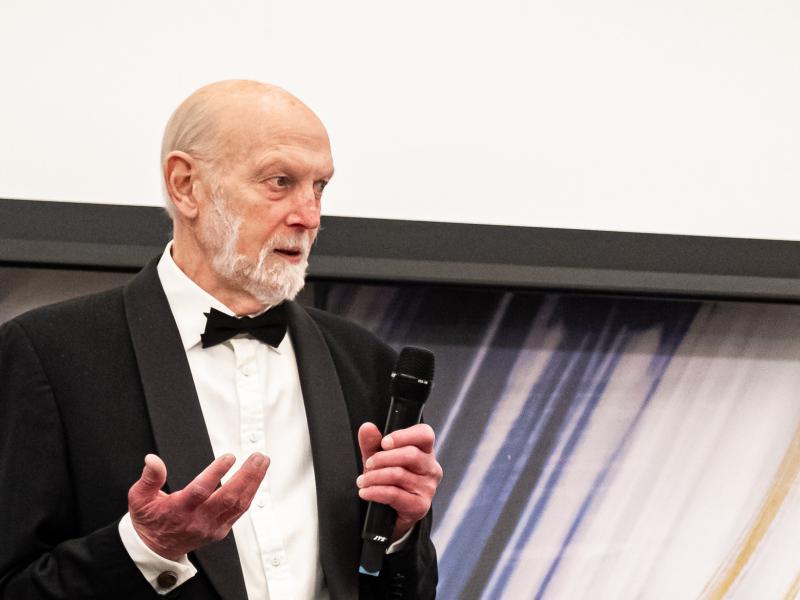Canada's first all-electric tug, which will soon begin operation in Canada, is an example of what can be achieved on both climate and first nation’s justice when workers, first nations people and companies come together.
Peter Lahay, Coordinator of the ITF’s Inspectorate in Canada, told ITF about the inspired action of ILWU Canada Local 400 in bringing the parties together to drive forward both sustainable transport and job creation for the Haisla Nation.
“A decade ago, when LNG was still a quiet rumour in Kitimat, ILWU Canada Local 400 Marine Section recognised immediately that the project would include maritime jobs, and that any future tug work belonged, above all, to the First Nations seafarers there,” said Lahay. “We set about ensuring the work went to them — and we did so with a sense of purpose, solidarity, and the belief that an injury to one is an injury to all.”
“We began by acknowledging that First Nations peoples were the West Coast’s first seafarers. We secured a change to the section of our union constitution governing shipping rules. We travelled to Kitamaat Village to meet with the Haisla Nation to consult on next steps in the process of reconciliation. All this work began before Seaspan launched its own work in the region — something all our members can forever be proud of.”
 Left: Haisla First Nation and ILWU Canada Local 400 members Bradley Windsor, Christian Cross, Edmund Smith, alongside Craig Windsor and Edward Ross (Photo: Craig Windsor). Right: ILWU Canada Local 400 Union Executive – Ziggy Mangat, Treasurer, Jason Woods, President, and Peter Lahay, ITF Inspectorate Coordinator, proudly stand in front of HaiSea Wamis.
Left: Haisla First Nation and ILWU Canada Local 400 members Bradley Windsor, Christian Cross, Edmund Smith, alongside Craig Windsor and Edward Ross (Photo: Craig Windsor). Right: ILWU Canada Local 400 Union Executive – Ziggy Mangat, Treasurer, Jason Woods, President, and Peter Lahay, ITF Inspectorate Coordinator, proudly stand in front of HaiSea Wamis.The union began discussions before Seaspan became involved, but the two sides quickly reached the same conclusions: that the Haisla nation should itself have a stake in the tug business operating from its historical territory and that investments in the service should be at the cutting edge of climate action.
After years of hard work by all parties, ILWU Canada Local 400 President Jason Woods and Secretary Treasurer Ziggy Mangat were present last month to welcome the launch of the first of HaiSea’s ground-breaking emissions-free battery electric tugs.
The Haisea Wamis (IMO 9942964), named after Wamis, the first ancestor who sought sanctuary at Kitamaat, is a 28.4m, 131 tonne tug, built to service LNG Canada’s new export facility in Kitimat. Its crew are all Haisla seafarers and ILWU Canada members.
“We welcome the HaiSea Wamis to our shores,” said ILWU Canada Local 400 president Jason Woods. “But more than that, we welcome this new beginning that the partnership of Seaspan, First Nations and our union allows us. We are proud seafarers, every one of us, proud of the work we do, the strength of our solidarity and the value of our contribution to our families, community and country.”
Jacques Kerkhof, the European Transport Workers’ Federation Towage Committee Chair, celebrated ILWU Canada’s inspired action: “Hats off to the Local 400 who recognised early on that the LNG terminal would be a potentially huge creator of maritime jobs, and for recognising the jurisdiction of the Haisla Nation. The ILWU began a discussion process a decade ago with the Haisla people at Kitamaat, in a bid to ensure that decent, well-paid work would go to First Nations’ mariners. We congratulate ILWU Canada and the Haisla people for leading the world on both First Nations’ justice and climate action.”
Kerkhof said that currently shipping accounts for three percent of carbon emissions globally, and that the industry urgently needs to move from conventional fuels if we are to keep global warming in check.
“The Haisea Wamis is a fine example of how things should be done. The union working hand in glove with local communities and an open-minded tug company has given us the most positive outcome. The union and the Haisla nation should be tremendously proud of what they are achieving.”



